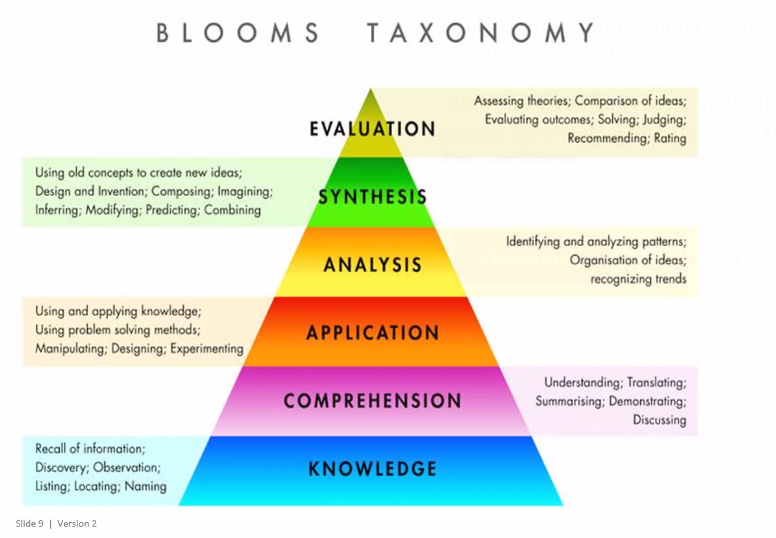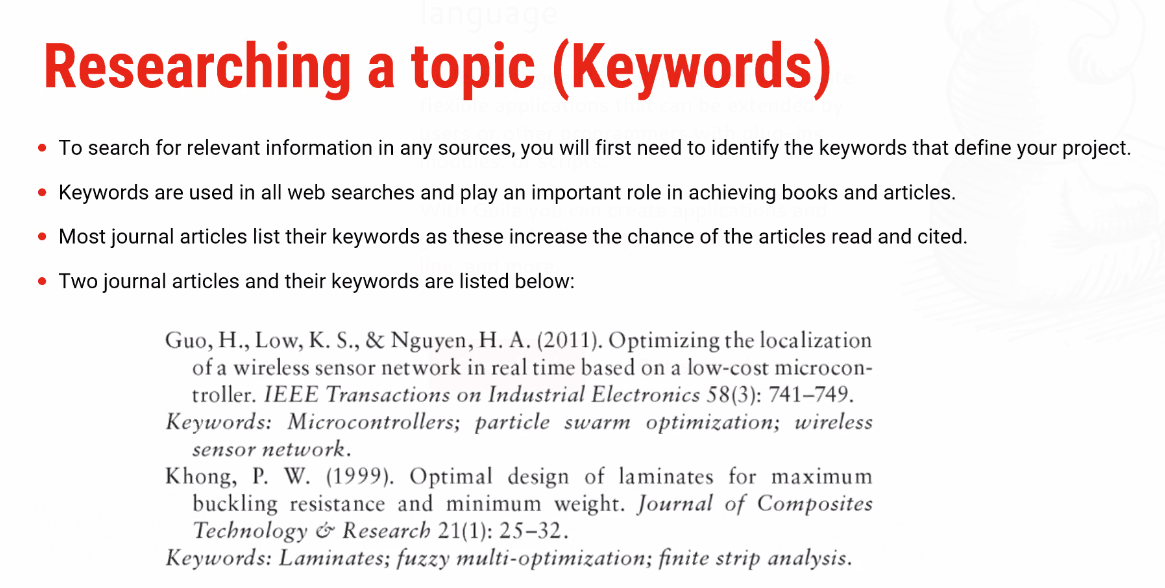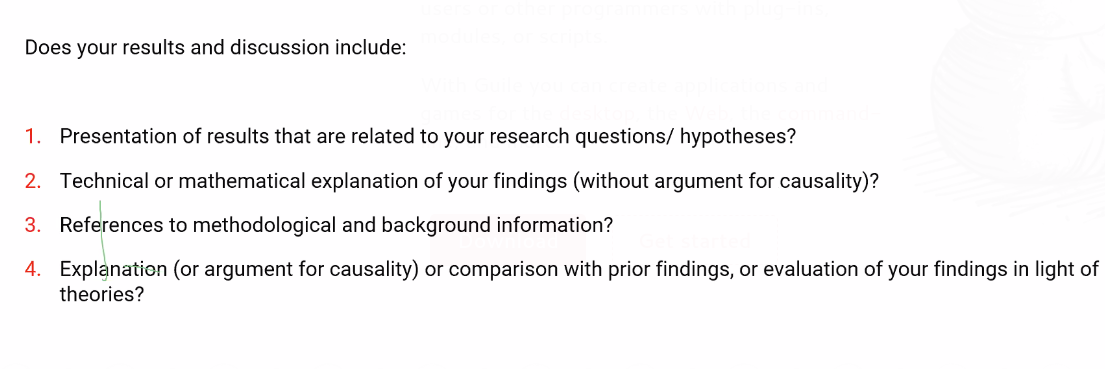Research Paper Writing
Table of Contents
- 1. Bandita Mainali
- 2. Congnitive Skills : BLOOMS Taxonomy
- 3. Consideration for choosing a project
- 4. Researching a Topic (Keywords)
- 5. Introduction
- 6. Literature Review
- 7. Common logical pitfall
- 8. Materials and Methods
- 9. Results and Discussion
- 10. Conclusion
- 11. Referencing and Citation Style
- 12. Acknowledging sources
- 13. Notes
1. Bandita Mainali
Lecturer at La trobe university, Austrailia since 2013
- Water sensitive Urban Design
- Coagulation process for coal tar
- Wendigo? to Nepal -> Technological transfer
- Application of Venturi Principle in waster water treatement
- inverse reatlino betn velocity and pressure
- using this concept to improve irrigation efficiency
- using same concept for waste water treatmeent
- Try for publishing in SCI journal , peer-reviewed
./cloud/Presentations/20201007133839-Research Paper Writing - Bandita Mainali.mkv
2. Congnitive Skills : BLOOMS Taxonomy
- Benjamin Bloom came up with this idea

Figure 1: Blooms Taxonomy
2.1. Knowledge
- Recall
- Obsevation
- Discovery
- Listing
2.2. Comprehension
- Understanding
- Discussing
2.3. Application
- Applying Knowledge
- use of problem Solving methods
2.4. Analysis
2.5. Synthesis
- using old concepts to create enw ideas,
- Design and invention
- Composition, imagination
2.6. Evalutaion
3. Consideration for choosing a project
3.1. What appeals to you, your interest.
3.2. What type of research work would I like to conduct?
- Experimental
- Numerical
- Analystical
- Survey
- Software coding
- Design
What is your strength? Maybe numerical simulation. This is only known to you so, choose according to your interset and strengths.
3.3. Resources available
3.4. How much do I already konw about the research topic and what skills do I already have for researching it?
4. Researching a Topic (Keywords)

5. Introduction
Don't only describe the problem but also Justify the need of solutoin for the problem and how this research solves it.
5.1. Background and research gap
5.2. Justification of your research top
5.3. …
6. Literature Review
- for methodology conduct literature review and justify your methodology; similar method has be used by some other paper. use peer reviewed paper for validation of methodology.
7. Common logical pitfall
You should substantiate every claim which is not based on common knowledge with in-text citation.
- If you support a general claim with one citations, it may be deemed unsufficient.
Logical Pitfalls:
- False analogy
- Post hoc or false cause
- When an event follows another, it is assumed that the former caused the latter. e.g. an increase in artifical meat sales last year was followed by an increase in heart disease and therefore ,….
- Slippery slope
- False dileama
8. Materials and Methods
- A justification of the methodological approach and resarch design if both of them are new or controversial!
9. Results and Discussion
- Hightlight the finding
- Don't waste time on talking about other aspects of your research which are
9.1. Component 1: Present meta-textual information
- State background information
- methodological information
- restate research questions/hypotheses
9.2. Present finding
- Direct readers' attention to table or figure
- highlight findign
9.3. Discussion- Component 3: Interpret Finding
- Explanation of finding

10. Conclusion
11. Referencing and Citation Style
12. Acknowledging sources
- Primary sources : original materials, created during the time of the study
- Secondary sources: consist of interpretations and analyses of primary sources
- Tertiary sources are sysntheses of primary and secondary sources.
Exampels of secondary sources include textbooks (also considered tertiary), …
Acknowledging sources is necessary to avoid plagiarism.
13. Notes
- Ivy League?
